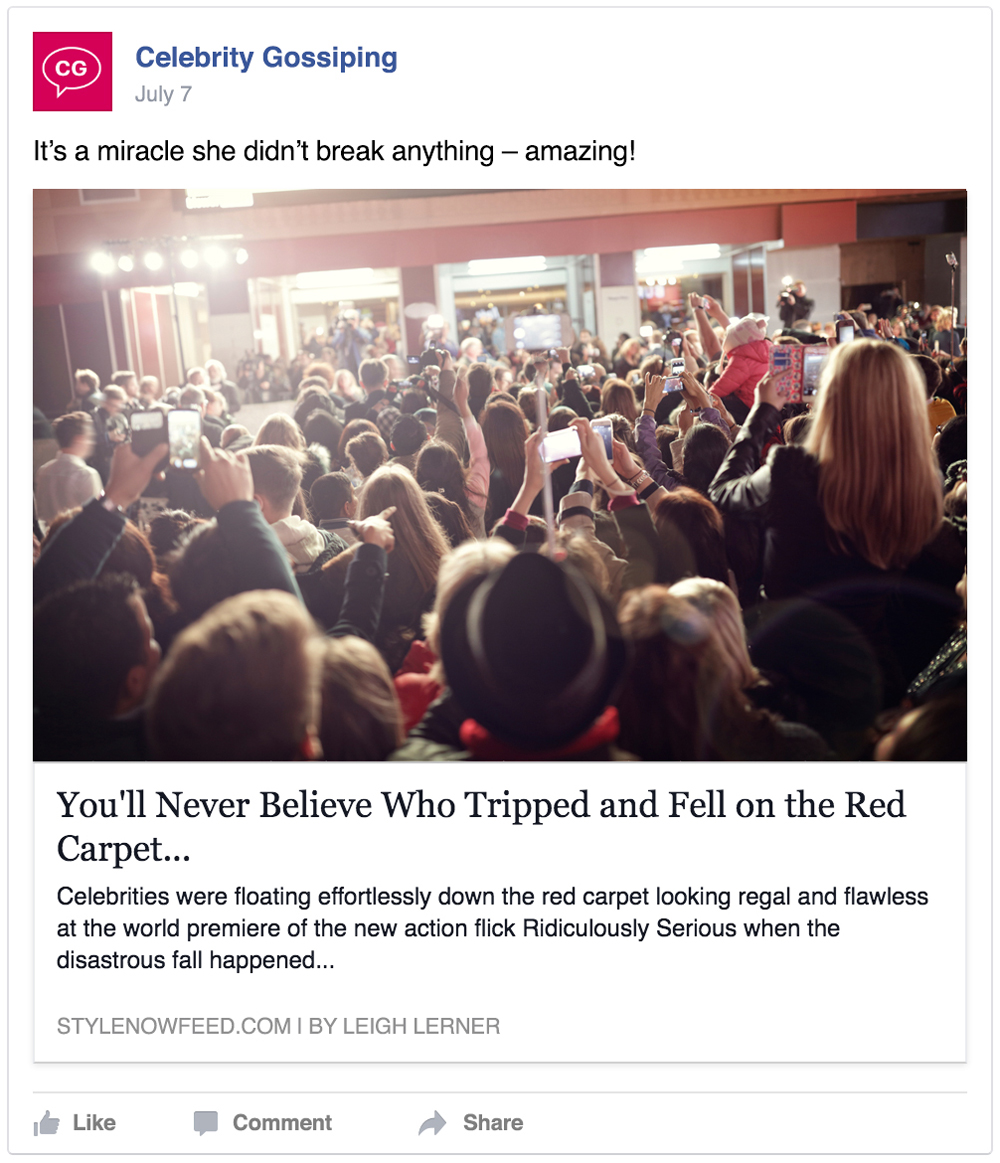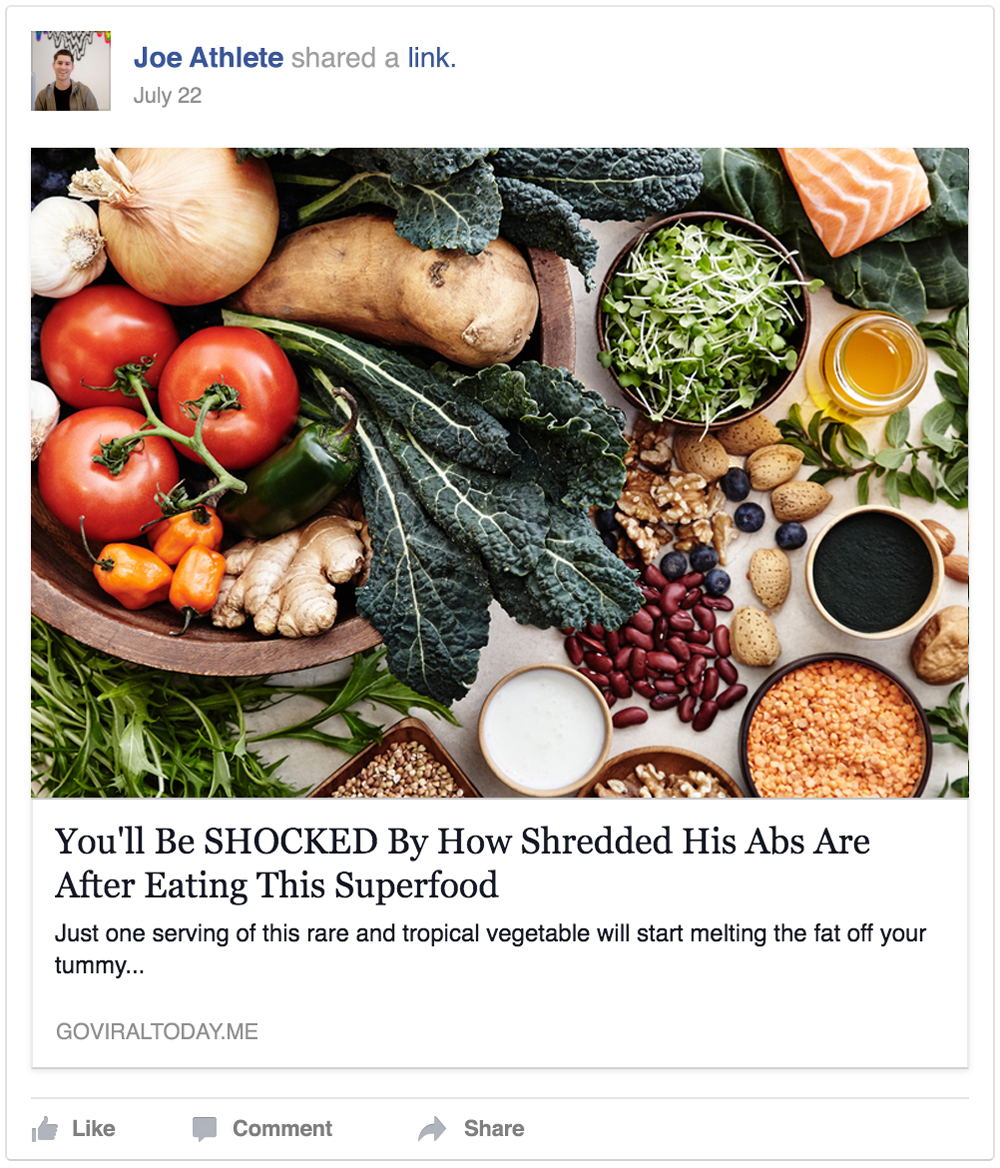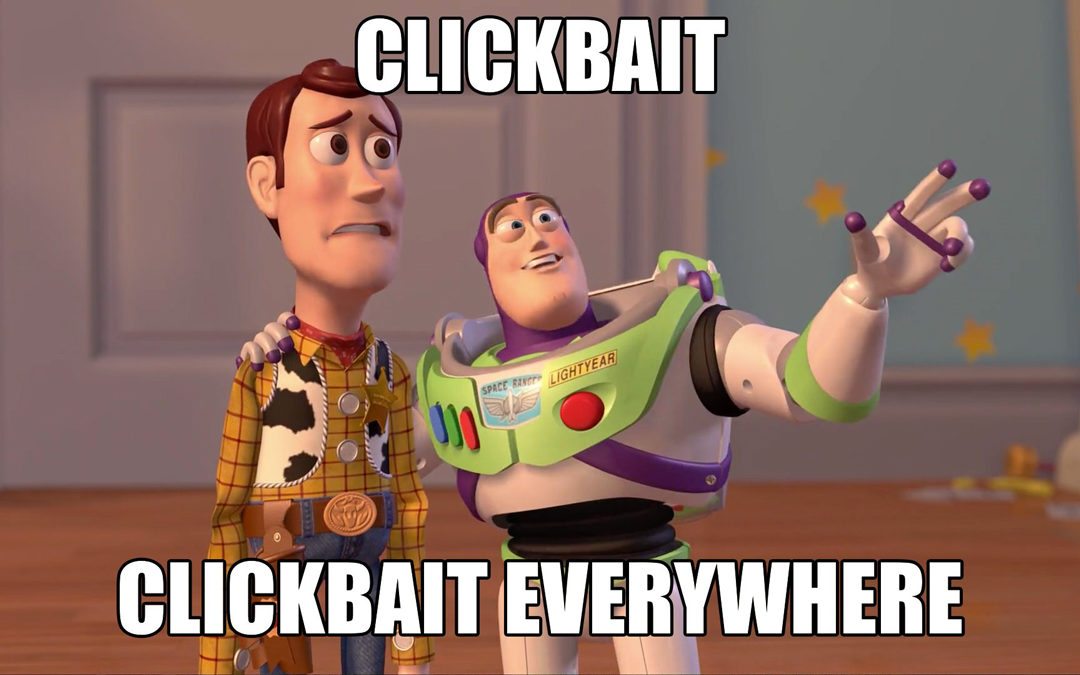Yesterday, Facebook made a MAJOR announcement that will affect the way your content is displayed on the Facebook News Feed.
There are many sites on the internet that exaggerate truth and distort information behind a story, just to get you to click on the link and visit their website. This is referred to as clickbait.
What Is Clickbait?
To help you understand what clickbait is, Facebook provided us with three specific examples. They are:
- “When She Looked Under Her Couch Cushion And Saw THIS…I Was SHOCKED!”
- “He Put Garlic In His Shoes Before Going To Bed And What Happens Next Is Hard To Believe”
- “The Dog Barked At The Deliveryman And His Reaction Was Priceless”
Clickbait is a problem. Facebook’s goal is to show stories that are most relevant for each individual user. Facebook wants authentic communication for everyone that uses Facebook.com.
What Is Facebook Doing To Reduce Clickbait?
Previous to this update, one way that Facebook knew if a story was clickbait was if the user clicked on a link taking them to another site, and then the user quickly came back. While this update helped, many users said that they wanted to see even fewer clickbait articles in their News Feed.
Yesterday’s update will now look for specific phrases commonly associated with clickbait. Facebook looked at tens of thousands of headlines and summarized their findings with two main points:
- “If the headline withholds information required to understand what the content of the article is.”
- “If the headline exaggerates the article to create misleading expectations for the reader.”
“She Fell Off Of A Mountain And You’ll Never Guess What Happens Next” is an example of a headline that withholds information required for the article. It doesn’t tell us what happened or whom it happened to.

Facebook’s team of expert engineers then gathered all of the information from the tens of thousands of headlines that they examined and created a software program to help them identify what Facebook Pages and Web URLs these spammy posts come from. When Facebook finds clickbait posts, both the Facebook Pages and Web URLs will be punished.
However, over time Facebook will again show the content from these Facebook Pages and Web URLs in the future if they stop posting clickbait and spammy articles.

How Will Facebook’s Changes Affect The Visibility For My Posts?
Facebook assures us that most pages won’t see any significant changes for the visibility of their posts.
However, for pages that regularly use clickbait to drive traffic and sales to their business, they should expect to see a sharp decline in the number of people that click on and view their posts.
As Facebook continues to improve and modify their policies, we will continue to keep you up to date. And if you have any additional questions about this policy, you may review it here on Facebook’s blog.


Personally I think it’s about time they slow down clickbait! It’s really annoying! Thanks so much for keeping us informed!
We completely agree Celene! And thank you for using TinyTorch!
Great information. I don’t use this but glad it will be gone. Thank you for keeping us posted on changes and simple ways to stay in compliance.
That’s good to hear, and we’ll definitely keep you informed!
This is great. I get suckered to so many of these posts.
Lol, I have gotten suckered into sooooo many of these as well. Thanks!
Hence yet another reason i make each post personal and lack of the guessing game. Clickbait is a pain in the butt! and Very annoying.
Thank You Tinytorch for all you do to help to keep us informed
It is very annoying! It is a pain. And thank you for using TinyTorch Irene. =)
Thank goodness Facebook is making this change. I have to fight the urge to click every time!
Thanks Taylor for the kind words! And I have to fight the urge to click too.
Thank you for solving problems I didn’t even know I had. TinyTorch is such a fabulous tool that just keeps getting better 🙂
Paula, anything that we can do to help you, we will do. 😉
I hope this is going to be used legitimately for the purposes stated and not just to filter political posts for one side or the other. It concerns me that this is happening in an election year.
Dawn, great point. We’ll see what this will do on political posts. Facebook is trying to make the post more informative. They published a story about this today. http://newsroom.fb.com/news/2016/08/news-feed-fyi-showing-you-more-personally-informative-stories/